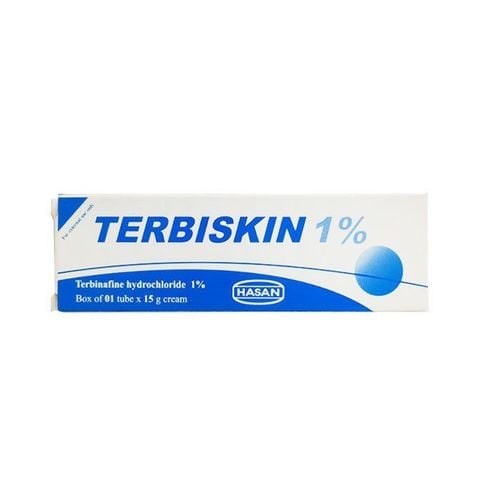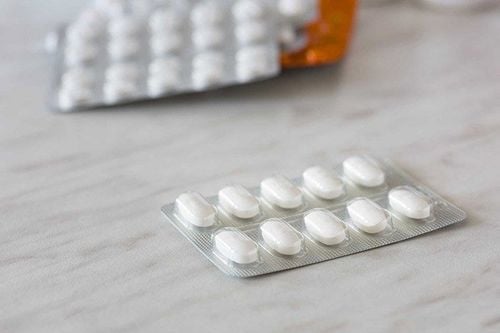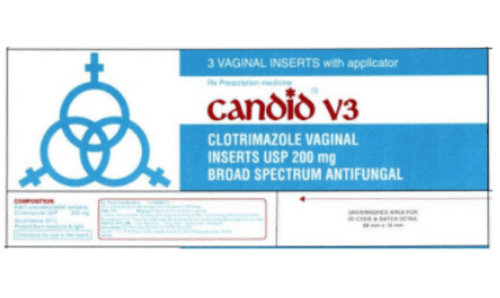This is an automatically translated article.
Amphot is a drug prepared in the form of lyophilized powder for injection, with the main ingredient being Amphotericin B, 50mg content. This is an anti-fungal antibiotic that fights infections of various causes. What is the mechanism of action of the drug? Indicated how to use? We invite you to read the article below.
1. Uses of Amphot
Amphot contains the main active ingredient, Amphotericin B, an antifungal antibiotic, belonging to the Polyene group, which has anti-fungal effects by attaching to sterols in the fungal cell membrane to change the permeability of the cell membrane. This component is also attached to human cytoplasmic sterols (mainly cholesterol). Therefore, the drug has been formulated as liposomes or lipid complexes to reduce toxicity.
Active ingredient Amphotericin B has antibacterial effect against some fungi such as: Absidia spp., Basidiobolus spp., Paracoccidioides brasiliensis, Blastomyces dermatitidis., Conidiobolus spp., Candida spp., Coccidiodes immitis, Cryptococcus neoformans, Histoplasma capsulatum sp., Rhizopus spp., Rhodotorula spp. and Sporothrix schenckii.
Amphot drug has no effect on bacteria, Rickettsia, virus and almost no resistance. The drug is poorly absorbed from the gastrointestinal tract, should be administered intravenously to treat systemic and visceral fungal infections.
This active ingredient Amphotericin B is slowly excreted by the kidneys, accumulating in the urine at least after 7, so that Amphotericin has a high risk of nephrotoxicity.
2. Indications for use of Amphot
Amphot is a prescription drug, used as prescribed by a doctor. The drug is only used in hospitals for patients with severe or potentially fatal fungal infections such as: Cryptococcus, Coccidioides, Histoplasma, Mucor fungi caused by strains of Mucor, Rhizopus, Absidia, Blastomyces, Moniliasis, Entomophthora and Basidiobolus, Sporothrix Schenckii, Aspergillus.
3. Dosage and how to use Amphot
Amphot drug is mixed intravenously slowly about 4-6 hours with a concentration of 0.1mg/mL. The dose is started at 0.25mg/kg and gradually increased until tolerability is allowed for the patient. The total dose may be up to 1mg/kg/day or can be alternated daily up to 1.5mg/kg.
Amphot dosage above is for reference only. Depending on the medical condition, the severity of which is different, the doctor and medical staff give a specific dose for each patient. To have the correct dose and use Amphot to achieve the best effect as well as ensure health safety, you should follow the instructions of a specialist.
4. Contraindications to using Amphot
Patients who are sensitive or allergic to Amphotericin B or any other excipients in Amphot.
5. Be careful when using Amphot
Use caution when using Amphot for children, pregnant and lactating women.
Regularly check, monitor kidney function, liver, electrolytes and blood count periodically.
When stopping Amphot for longer than 7 days, always restart with the lowest dose of 0.25mg/kg and then gradually increase until well tolerated.
6. Amphot interaction with other drugs
When taking Amphot simultaneously with other drugs can cause interactions with each other. So if you are using any medicine or health food, tell your doctor to avoid possible bad interactions. Attention should be paid to interactions with the following drugs:
Cisplatin ; Pentamidine; Aminoglycosides ; Cyclosporine ; Corticosteroids ; ACTH; Cardiac glycosides; Muscle relaxants; Antiarrhythmic drugs; Flucytosine.
7. Side effects when taking Amphot
During the use of Amphot, patients may experience the following undesirable effects:
Fever, chills, chills; Headache; Anorexia; Weight loss; Nausea, vomiting, indigestion, diarrhea; Joint pain, muscle fatigue; Epigastric pain ; Edema, congestion at the injection site; Anemia; Liver and kidney dysfunction; Electrolyte disturbances; Blood pressure disorders; Hematological disorders; Respiratory disorders; Allergy . You need to inform your doctor about the undesirable effects mentioned above when using Amphot medicine to prevent other serious complications.
8. Overdose of Amphot
When taking an overdose of Amphot medicine can lead to cardiac arrest, respiratory failure because of the ingredient Amphotericin B. If the patient overdose, stop the drug immediately and monitor the patient's condition: Circulatory function, respiratory, liver, kidney, blood condition, electrolytes, ... for treatment and supportive treatment as required.
Amphot is a drug used to treat systemic or visceral fungal infections. Medicines are prescribed and used exactly as prescribed by the doctor/medical staff. Absolutely do not arbitrarily use the drug without the permission of the doctor. To ensure safe use of Amphot, the correct indication and dose, you need to follow the instructions of your doctor/pharmacist.













